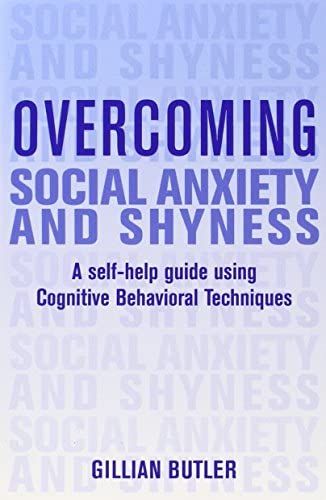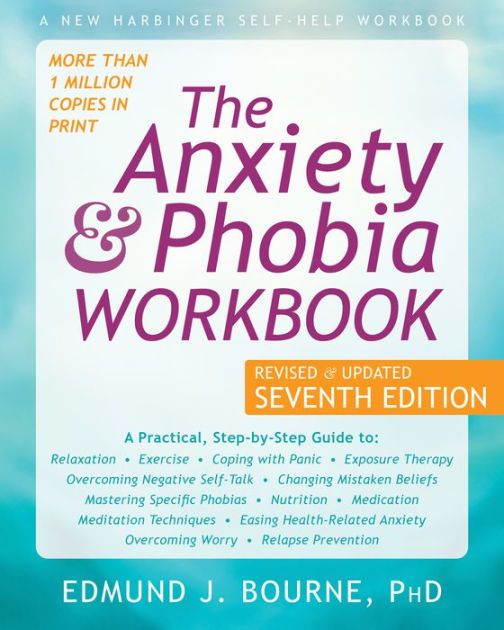Conquering Social Anxiety So You Can Feel Confident In Yourself!

Conquering Social Anxiety: How to Overcome Your Fears and Feel Confident Again
What Is Social Anxiety?
Social anxiety is a very real and very common issue faced by millions of people around the world. For some, it can be debilitating, and it can prevent them from living their lives to the fullest. In my experience, social anxiety is the knots in your stomach and the sweaty palms as you wait on your name to be called for reading out loud in front of the class. Social anxiety is the feeling I get when I have to present a project in front of my peers at my community college. Social anxiety is trying to be as inconspicuous as possible in a large group of people to avoid being put on the spot. Social anxiety has many different feelings and interpritations but one thing is very clear, we all have experienced social anxiety in one form or another.
The good news is that social anxiety can be conquered, and with a little bit of effort and determination, you can learn to manage your fear and feel confident again. In this blog post, we’ll explore what social anxiety is, the different types of social anxiety, the causes of social anxiety disorder, and some self-help strategies for overcoming social anxiety. We’ll also discuss some books that can provide guidance for building self-confidence and overcoming social anxiety, tips for managing social anxiety in different situations, and how to find support for social anxiety. Finally, we’ll discuss some of the benefits of overcoming your social anxiety, and why it is so crucial in order for you to have a successful future.
Social Anxiety Disorder Defined
Social anxiety disorder, also known as social phobia, is defined as an excessive fear of being judged by others in social situations. It can cause intense feelings of discomfort, fear, and insecurity. People with social anxiety disorder may avoid social situations altogether, or else feel extremely anxious when placed in them. It can have a significant effect on a person’s life, making it hard to make friends, advance in their career, or even just do everyday things like shopping or eating at a restaurant.
The good news is that social anxiety disorder is treatable. There are a variety of self-help strategies and treatments available to help people manage their symptoms and feel more confident in social situations.
Types of Social Anxiety
There are five different medically classified types of social anxiety, and it’s important to understand the different types in order to be able to identify and treat the condition.
- Generalized Anxiety Disorder, GAD.
- Obsessive-Compulsive Disorder, OCD.
- Panic disorder.
- Post-Traumatic Stress Disorder, PTSD.
- Social Phobia, or Social Anxiety Disorder.
The focus of this article will be on social phobia and social anxiety disorder. If you would like to read more about the other anxiety disorders I will link an article below that will provide more helpful information. 👇

Causes of Social Anxiety Disorder
The exact cause of social anxiety disorder is not clear, but it is believed to be a combination of environmental factors and genetics. It may be linked to low self-esteem, traumatic experiences, or a lack of social skills. It may also be caused by an imbalance in the neurotransmitters in the brain, such as serotonin.
Risk for social anxiety disorder may run in families, but no one knows for sure why some family members have it while others don’t. Researchers have found that several parts of the brain are involved in fear and anxiety and that genetics influences how these areas function. By studying how the brain and body interact in people with social anxiety disorder, researchers may be able to create more targeted treatments. In addition, researchers are looking at the ways stress and environmental factors play a role in the disorder.
Self-Help Strategies for Overcoming Social Anxiety
The first step to overcoming social anxiety is to recognize the problem and to understand that it is treatable. The next step is to develop self-help strategies to help manage your symptoms. Here are some tips for overcoming social anxiety:
- Cognitive behavioral therapy (CBT): This type of therapy is designed to help you change your thoughts and behaviors in order to reduce anxiety. It can help you to identify and challenge negative thoughts and to learn new coping skills.
- Exposure therapy: This type of therapy involves gradually exposing yourself to the situations that make you feel anxious. It can help you to become more comfortable in social situations.
- Mindfulness and relaxation techniques: Mindfulness and relaxation techniques can help to reduce stress and anxiety. Techniques such as deep breathing, progressive muscle relaxation, and guided imagery can be very helpful.
- Exercise: Exercise is a great way to reduce anxiety and to boost your self-confidence. It can also help to improve your mood.
- Self-care: Taking care of yourself is an important part of managing anxiety. Make sure to get enough sleep, eat a healthy diet, and take time for yourself.
Books for Building Self-Confidence and Overcoming Social Anxiety
There are many books available that can help you to build self-confidence and to overcome social anxiety. Here are some of the best:
- Overcoming Social Anxiety and Shyness by Gillian Butler. This book provides practical advice for managing social anxiety, such as strategies for dealing with anxious thoughts and learning how to communicate effectively.

- The Anxiety and Phobia Workbook by Edmund J. Bourne. This workbook contains a range of tools and techniques for overcoming social anxiety, such as breathing exercises, relaxation techniques, and cognitive behavioral therapy.

- Feel the Fear and Do It Anyway by Susan Jeffers. This book provides practical advice on how to confront fear and anxiety and to take action in spite of it.

Tips for Managing Social Anxiety in Different Situations
It’s important to recognize that different situations can trigger different levels of anxiety. Here are some tips for managing social anxiety in different situations:
- Social Gatherings: I believe we have all made plans of going out with some friends and as ghe date gets closer we get anxious and debate on if we should even go. You may even skip out on the event all together. If you make it to the event try to focus on the positive aspects such as the music or the food. Don't put so much pressure on yourself to start the conversations or to be the most outgoing person in attendance. It can really help to have a few topics of conversation in mind, just in case you need to make small talk with someone.
- Public speaking: If you’re feeling anxious about public speaking, it can help to practice ahead of time. Not just practice but become so familiar with your talking points and direction of your speech that it becomes second nature. When delivering your speech focus on the content of your speech, rather than on the audience. That is not to say you should stare down at your paper but rather, focus on the content of your information being presented and try to remember no one is there waiting to hear you mess up, -and if you do make a mistake I promise people will quickly forget. Public speaking is probably the most commom situation that woukd cause someone to feel the social anxiety cues and I have always found that remembering that fact allows me to feel better about the situation. It helps me relax.
How to Find Support for Social Anxiety
It’s important to remember that you don’t have to face social anxiety alone. There are a variety of support options available, including therapy, support groups, and online forums. Here are some tips for finding support for social anxiety:
- Seek professional help: If you’re feeling overwhelmed by your anxiety, it can be helpful to seek professional help. A therapist or counselor can provide valuable support and advice.
- Join a support group: Support groups can be a great way to connect with other people who are dealing with similar issues. It can also provide a safe and supportive environment to talk about your experiences and to get advice from others.
- Look online: There are many online forums and support groups available for people with social anxiety. These can be a great source of information and support.
Exercising to Help Reduce Social Anxiety
Exercise is a great way to reduce stress and anxiety. It can also help to boost your self-confidence and to improve your mood. Regular physical activity can help to reduce anxiety symptoms and can also help to improve your overall health and wellbeing. I found that the gym was where I personally made the biggest improvements with my social anxiety. I Found confidence in myself as I became stronger. I was able to practice exposure therapy albeit unknowingly at the time. I would see someone complete a heavy lift and afterwards give a fist bump followed with a "nice lift!" and those comments began conversations which created friendships and it slowly became easier and easier over time.
Online Resources for Managing Social Anxiety
There are many online resources available for managing social anxiety. Here are some of the best:
- Anxiety and Depression Association of America: The Anxiety and Depression Association of America provides information about social anxiety disorder and other anxiety disorders, as well as resources for managing anxiety.
- Calm Clinic: Calm Clinic provides information about social anxiety, as well as tools and techniques for managing anxiety.
- Social Anxiety Institute: The Social Anxiety Institute provides information about social anxiety disorder, as well as support and advice.
- PsychCentral: PsychCentral provides information and resources for managing social anxiety, as well as a forum for people to connect and discuss their experiences.
Why Overcoming Your Social Anxiety is So Crucial in Order for You to Have a Successful Future
Overcoming your social anxiety is an important step in achieving success in life. Being able to communicate effectively and to build relationships is essential for career success, as well as for achieving personal goals. Being able to manage your anxiety in social situations can also help to reduce stress and can improve your overall wellbeing and quality of life. The interactions uou have with people and the ability to develop relationships with othera will dictact the success of your future so it is crucial to start taking the neccesary steps to overcome your social anxiety.
Conclusion
Social anxiety is a very real and very common issue faced by many people. It can have a significant effect on a person’s life, making it hard to make friends, advance in their career, or even just do everyday things. The good news is that social anxiety is treatable, and with the right self-help strategies and support, it is possible to manage your symptoms and to feel confident again.
This is not intended to be mediacl advice. I am not a medical professional. I am speaking purely from the point of view of someone who has struggled with anxiety for many years of my life and I want to help others in the same way resources like this helped me. please visit my disclaimers page for more information.



